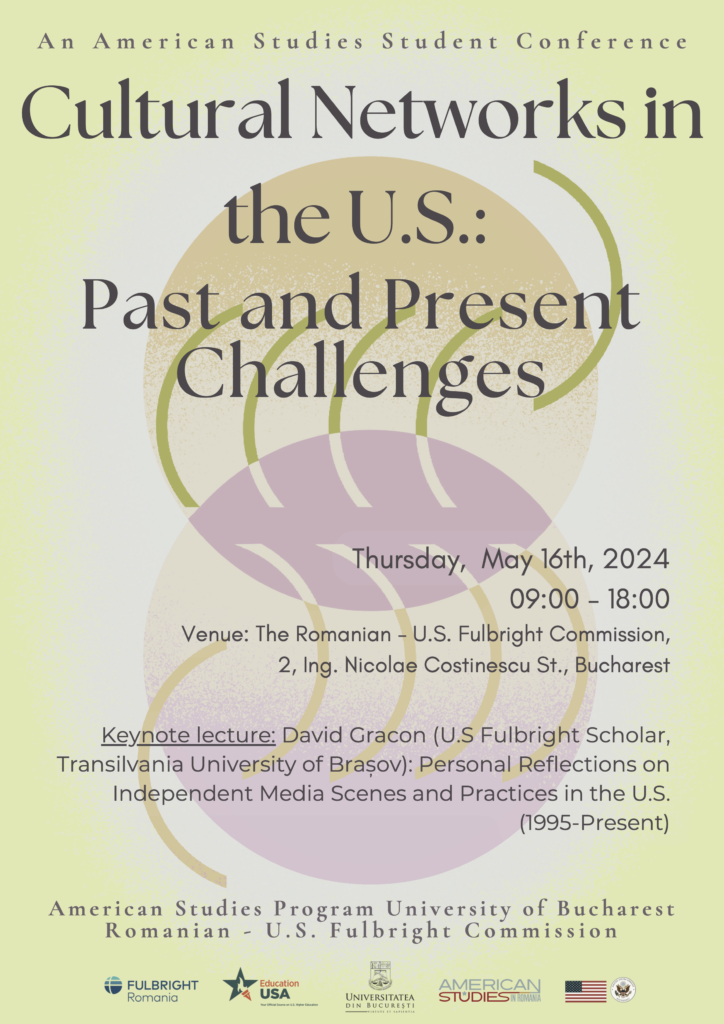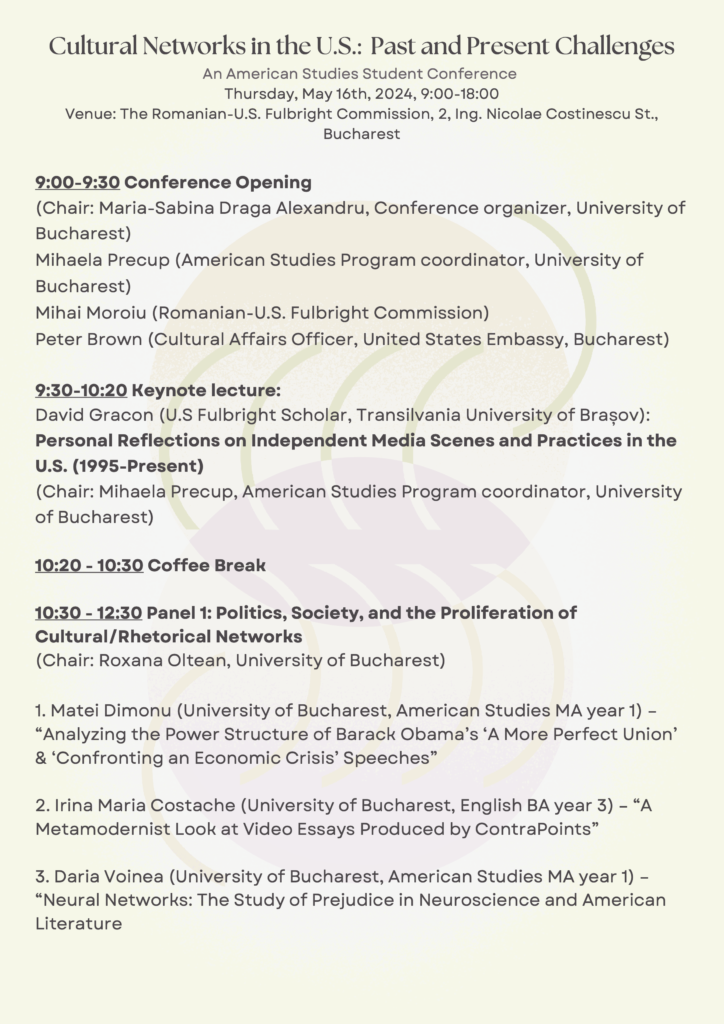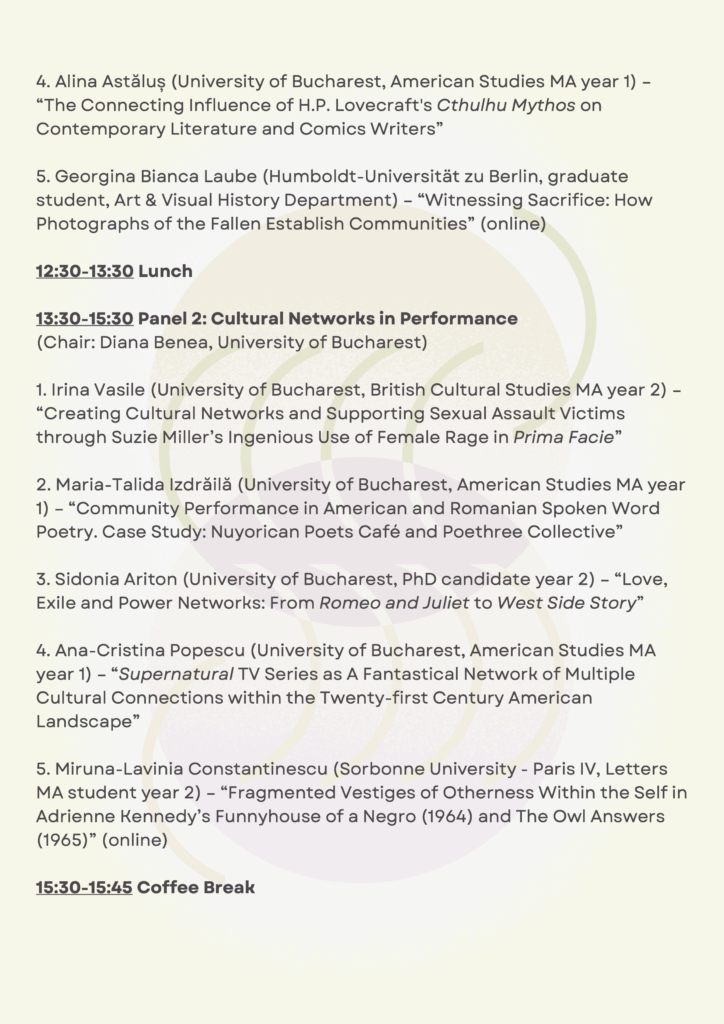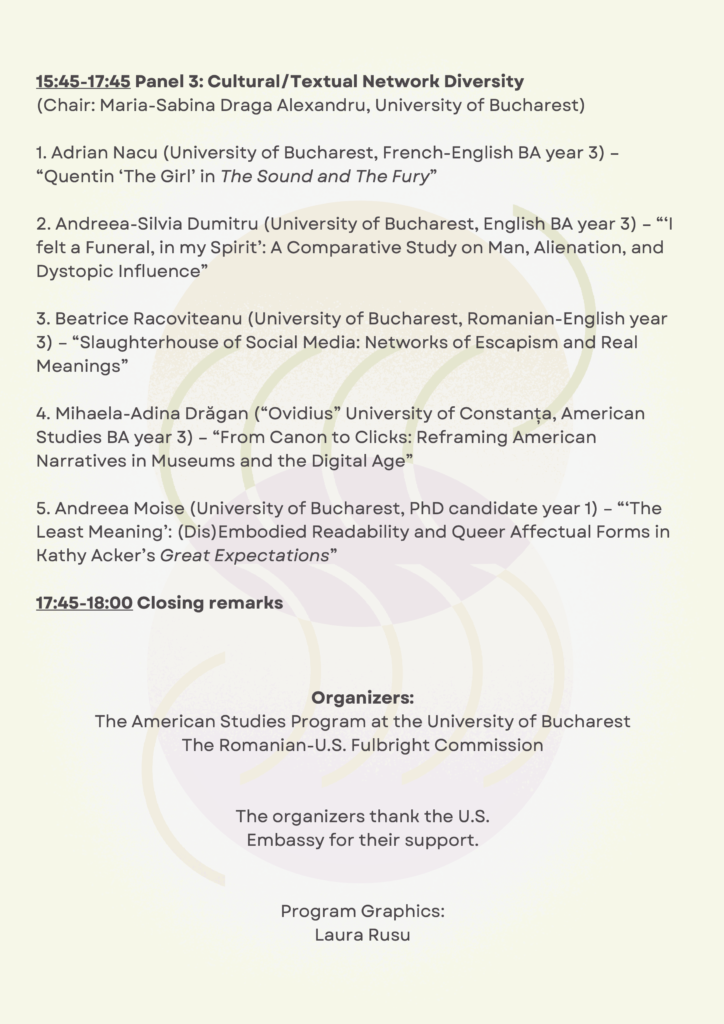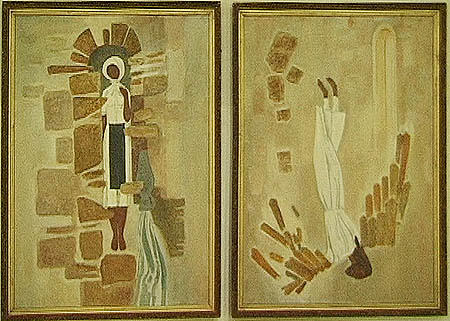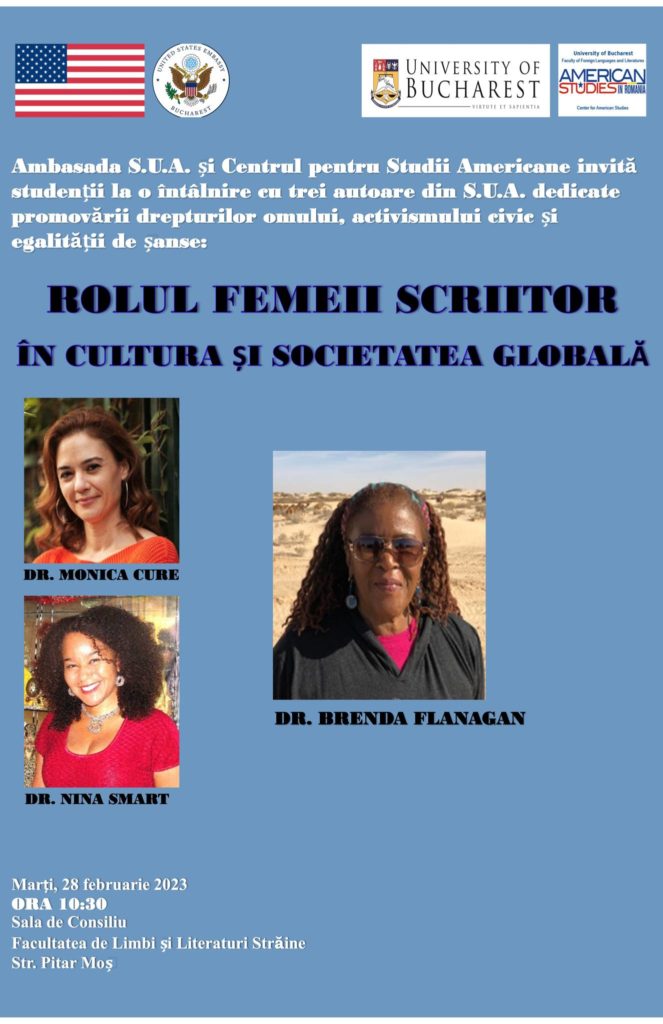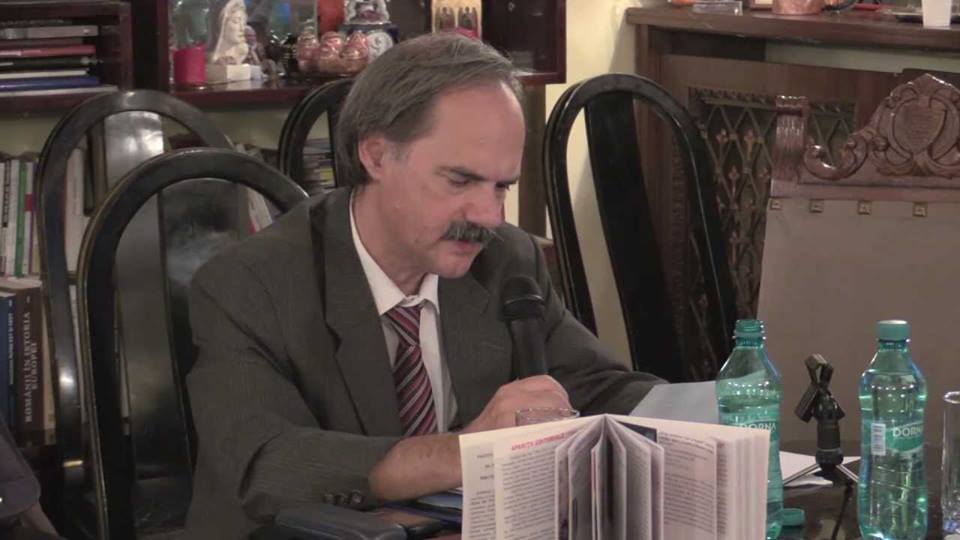Online Workshop:
Contemporary Gothic from a Comparative Perspective
Saturday, November 29, 2:00-5:00 pm (Bucharest time, GMT + 2)
Conveners: Roxana Oltean (The Center for American Studies, University of Bucharest) and Hande Tekdemir (The Research Institute of the University of Bucharest)
Organized by Center for American Studies and The Research Institute of the University of Bucharest
Please use this link to connect: https://meet.google.com/vfa-rhdk-imq
Panel 1: 2:00 pm – 3:25 pm
Contemporary Gothic Re-inscriptions. Chair: Hande Tekdemir
Foundational and Modern Female Gothic: Music, Haunting, and Female Identity in Radcliffe’s The Italian and du Maurier’s Rebecca
Gabriela-Marinela Hlușcu, Marius-Mircea Crișan, West University of Timisoara, Romania
Hauntological Echoes in the Neo-Gothic: Fragmented Identities in Ayfer Tunç’s The Highly Unreliable Account of the History of a Madhouse
Fatma Zeynep Bilge, Mimar Sinan Fine Arts University, Turkey
Alive and Kicking: Frankensteinian Intertexts in Music Videos
Tomasz Fisiak, University of Lodz, Poland
Contemporary Tasmanian Gothic: crime procedural, matrilineal folk horror and haunted landscapes in The Gloaming
Rebekah Brammer, University of New England, Australia
Toxicity in Contemporary Anglophone Ecogothic Fictions
Katarzyna Więckowska, Nicolaus Copernicus University in Toruń, Poland
The Rise of the Gothic in Contemporary Young Adult Fiction
Hande Tekdemir, Research Institute of the University of Bucharest, Romania
10-minute break (3:25-3:35)
Panel 2: 3:35 pm – 5 pm
(Re)-turning to the Gothic: Hauntings, Revisitations. Chair: Roxana Oltean
Ethical Limits of Embodiment in Contemporary Gothic Revisitations – Ahmed Saadawi’s Frankenstein in Baghdadand Angela Carter’s The Bloody Chamber
Dana Percec, Bianca Crișan, West University of Timisoara, Romania
‘The Innards of the Darkness Moved and Gave Birth to Me:’ Gothic Ruin and Excess in Ahmed Saadawi’s Frankenstein in Baghdad
Raluca Andreescu, University of Bucharest, Romania
Re-Inventing Bulgarian Gothic in Another Language? Gothically Inflected Fiction by Bulgarian Expatriates Writing in English
Ludmilla Kostova, University of Veliko Tarnovo, Bulgaria
Fearing the Invasion Traces: a case-study on Contemporary Bengali Indigenous Horror by Trijit Kar
Debaditya Mukhopadhyay, University of Gourbanga, India
The Life and Death of the Dead: Necropolitical Gothic in Mexican Literature from Tlatelolco to Ayotzinapa
Ali Eren Yanık, University of Texas at Austin, USA
Haunting the Canon: Spectral Representations of Dickens in the Neo-Victorian Novels Drood and The Last Dickens
Eliana Cristina Ionoaia, University of Bucharest, Romania
Edgar Allan Poe’s After-Worlds. Gothic Exploration and Matt Johnson’s Pym (2011)
Roxana Oltean, University of Bucharest, Romania


